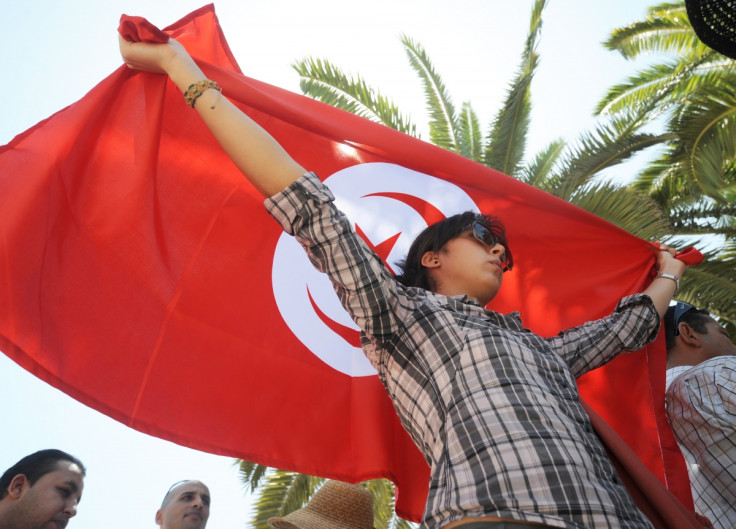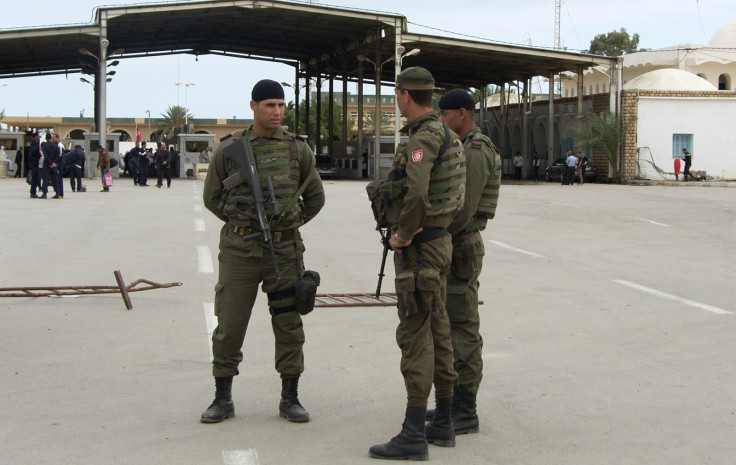Nobel Peace Prize is glimmer of hope for Tunisia's fragile democracy

On Friday, the Nobel Peace Prize Committee announced the attribution of this year prize to the Tunisian National Dialogue Quartet. This surprising announcement disseminated happiness and pride among a wide range of Tunisians regardless of their ideological and political affiliations and convictions.
Indeed, this prize comes as glimmer of hope for Tunisia. It is recognition of the efforts of Tunisians in getting rid of a dictatorship and of their attempts to build a real democracy. It comes as tribute to the martyrs and the wounded of the revolution who faced bullets and tear gas with their bare chests as well as all Tunisians who took part in the revolution and have been very active during the last five years.
By awarding this Prize to the Quartet, the Nobel committee is rewarding the Tunisian revolution. This award will ignite hopes of freedom, dignity and peace in Tunisia.
Those Tunisians who made many sacrifices in order to accomplish a real change in Tunisia; those women and men who occupied the streets and slept outside on public places to make pressure whenever the country witnessed a derailment from the right path. The prize comes also as an acknowledgment of the role of civil society in saving a country that was on the brink of a civil war. This civil society has been active in all the stages of the revolution and the democratic transition.
It is very important to start by reminding that the Quartet was formed in the summer of 2013 when the country was in a very critical moment of its history. It was composed of the Tunisian General Labor Union, the Tunisian Confederation of Industry, Trade and Handicrafts, the Tunisian Human Rights League and the Tunisian Order of Lawyers.
At the time Tunisia had already witnessed two political assassinations, a number of terrorist attacks targeting the military and police forces and social unrest. The government in place was unsuccessful in fulfilling the objectives of the revolution and in insuring the stability of the country. Tunisians were really angry and started to demonstrate and began a sit-in outside the Constituent Assembly asking the government to step down.
As the tension was arising, the quartet guided a national dialogue that helped save the country from a sinking into bloodshed and chaos. In fact, the civil society quartet succeeded in bringing together fiercely adversarial political parties to a dialogue table to find solutions that would help the country avoid chaos.
By awarding this Prize to the Quartet, the Nobel committee is rewarding the Tunisian revolution. This award will certainly ignite hopes of freedom, dignity and peace in Tunisia as the country is witnessing hard times and several problems on different levels.
Nevertheless, we do not have to forget that the country did not succeed yet in fulfilling the objectives of its revolution. Today the situation is very critical. This award should be seen by Tunisian civil society as a reminder of their role and as a trigger to make more efforts. It should not overshadow the present problems of a country that did reform its security and judicial systems yet.

We have to keep in mind that Tunisia is facing a real terrorist threat. One day before the announcement of the prize, a member of the Tunisian parliament had 30 bullets fired at him while he was driving his car. It is true that the security solution is a one of the most important solutions to fight terrorism but the civil society faces other challenges today.
All institutions should work together to target the roots of terrorism: mainly poverty and oppression. They should be vigilant face to a counterterrorism policy that is often accompanied by rights violations. Unfortunately, today Tunisians are not fully enjoying their dignity yet. News of torture and bad treatments by the police are recurrent and repetitive.
Moreover the economic situation is very bad due to several factors including the rise of terrorism and its impact on such a vital economic sector as tourism. Furthermore, people from the old regime are trying to dominate the country again. Many of the corrupt and crooked former businessmen and officials will escape prosecutions and trials thanks to a reconciliation law bill proposed by the president. Old repressive practices are back and are really threatening democracy in Tunisia.
The attribution of this prize to Tunisia should be used to push the country in the right direction. It offers new hopes for Tunisia and Tunisians but it should not veil the real situation in the country today. Today Tunisians should stand together to fulfil peace, democracy, dignity and freedom.
Finally, all the governments around the world should understand that Tunisia is not a terrorist country. Tunisians should not be judged for the misdeeds of a minority group trying to spread chaos. It is a peaceful land where there are many Tunisians who really love their country and are making real efforts to save it and to improve its situation.
Lina Ben Mhenni is a journalist, activist and commentator based in Tunis.
© Copyright IBTimes 2025. All rights reserved.






















